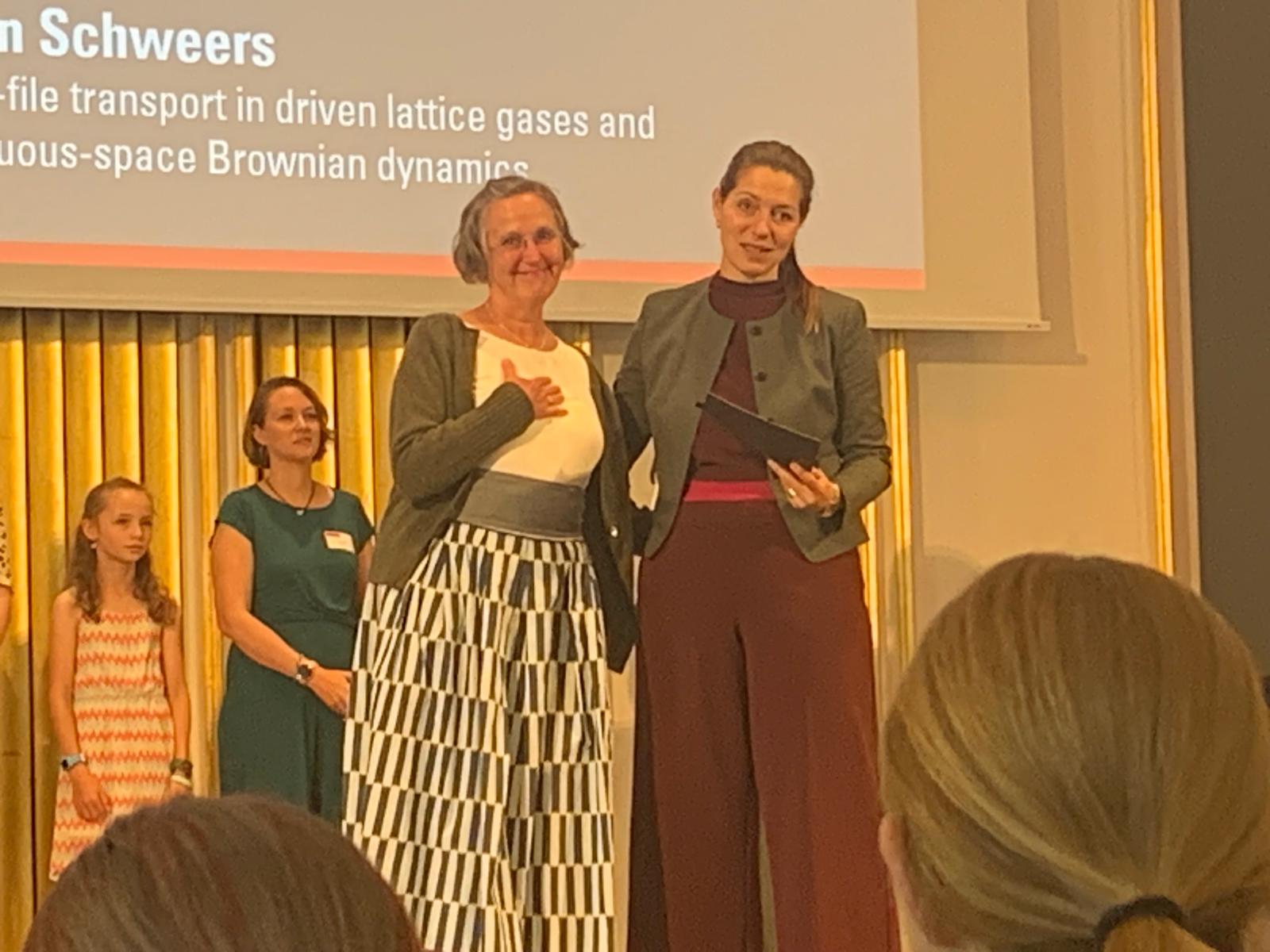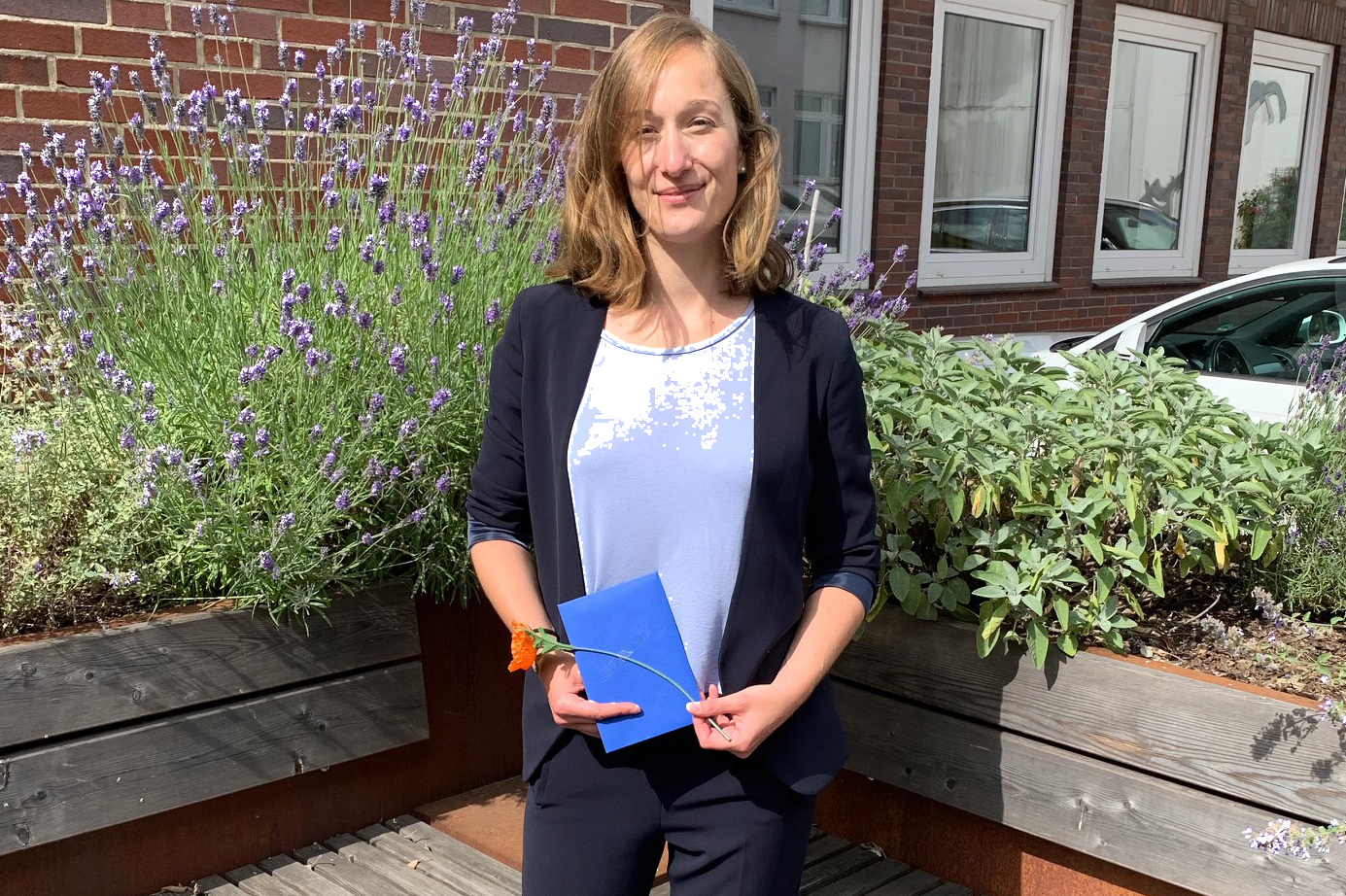Main content
Top content
Top content

Successful dissertation in the field of Textile Studies
"The Beiderwand weaving workshop in Meldorf as place of textile memory"
In 2025, Lucia Schwalenberg completed her dissertation “The Beiderwandweberei Meldorf as a place of textile memory” with summa cum laude honors. Lucia Schwalenberg's dissertation explores the history, technology, and pattern collection of the Beiderwandweberei Meldorf as a place of textile memomy. The research project focuses on analyzing the sources relating to the establishment of the museum workshops at the Dithmarscher Landesmuseum and the pattern archive at the Altes Patorat Meldorf. The main research question is: What makes the Beiderwandweberei Meldorf a textile place of remembrance? The aim is to highlight the relevance and potential of the Beiderwandweberei Meldorf for passing on textile culture. Essentially, this dissertation aims to show whether and how textile memorial sites contribute to the preservation, transmission, and future of textile culture and textile knowledge. The doctoral thesis was supervised by Prof. Dr. Bärbel Schmidt.
Photo: Bärbel Schmidt.
-------

PhD projects in Textile Studies
In her dissertation project, Abeer Abdalla Alhems compares the textile higher education systems in Egypt and Germany. The aim of the research project is to identify textile learning content in the curricula that supports the preparation of prospective teachers in schools. The aim is to use textile education to help overcome the challenges of our time.
Lesley-Ann Baldwin's planned dissertation aims to examine the integration of vestimentary sustainability in a university teaching context and to develop an interdisciplinary and transdisciplinary module at the University of Osnabrück. The module is based on the university teaching clothing rental service Fairo Moda. The importance of clothing sustainability in the context of education for sustainable development (ESD) is key here, with the intention of promoting sustainable thinking and action (United Nations 2030 Agenda for Sustainable Development) among learners. A study by Antje Brock and Julius Grund's Institut Futur (Formal Education in Times of Crisis – The Role of Sustainability in Schools, Training, and Higher Education) shows that students want more ESD content in higher education teaching so that they can develop solution strategies for future crises. The module aims to provide students with specialist knowledge and experience in an interdisciplinary and transdisciplinary approach. The participants in the module come from around 30 different subject areas and can contribute their individual knowledge and skills. In addition, the module collaborates with external experts and practitioners from various fields who share their perspectives and experiences.
Anna Koch's dissertation project focuses on the implementation of creativity-promoting design processes in textile teacher training, with a particular emphasis on the gender perspective. The connection between textile education and textile design that the thesis aims to establish represents a research desideratum. The dissertation focuses on the adaptation of creative methods from the field of textile design that are introduced into the field of textile education. The aim is to support teacher training students in their creative processes. In addition, they should be enabled to teach these methods to schoolchildren. Based on the findings of theoretical and empirical research, a handbook is to be created as a guide for teachers in school textile education.
Photo: Lucia Schwalenberg
-------

Successful doctoral thesis at the Department of Textile Studies
“We will carry on! Textile Laienschaffen in the GDR and developments after German reunification.”
Sarah Wassermann hat 2020 ihre Dissertation im Fachgebiet Textiles Gestalten erfolgreich mit der Gesamtnote magna cum laude (1,0) abgeschlossen.
Sarah Wassermann successfully completed her doctoral thesis at the Department of Textile Studies in 2020 with the overall grade magna cum laude (1.0). Sarah Wassermann’s thesis focuses on textile Laienschaffen, i.e. textile groups that were established at the time of the GDR. Besides contributing to the collective memory of Germany as a whole, her thesis also makes a crucial cultural/scientific contribution to the development of a mutual understanding of cultures in the former GDR and FRG, and to mutual respect. Even 30 years after the fall of the Berlin Wall, it appears that this process is still ongoing; in some places, people still think in terms of “east” and “west”.
Studies that examine the topic of textile culture and its significance in the GDR, placing it in a pan-German context, are few and far between. Reference was made to this fact by Björn Raupach in his PhD thesis on “Politik und gewebte Lebensfreude – Der Bildteppich in der DDR” (Politics and woven joie de vivre – tapestries in the GDR), which he submitted in Paderborn in 2015. Unlike in other European countries such as Poland, France and Switzerland, where textile art is treated on an equal footing with art, in Germany the textile arts are regarded as non-preferential techniques of aesthetic visualization.
The first volume of Sarah Wassermann’s doctoral thesis is 280 pages long; the second 103-page supplementary volume contains numerous illustrations of collaborative works and individual pieces, a list of objects at the Akademie der Künste (Berlin), and a list of objects at the Museum Europäischer Kulturen (Berlin).
Photo and text: Prof. Dr. Bärbel Schmidt.
-------

